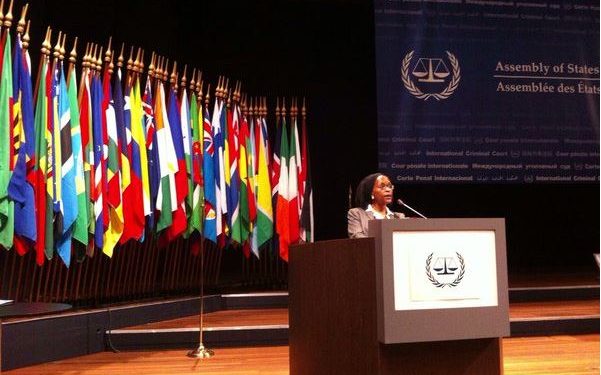Kenyan civil society organisations have reiterated their stand that Rule 68 is a court matter and it should not be debated by the Assembly of State Parties to the Rome Statute.
“The request by Kenya for the ASP to substantively discuss an issue that is currently under consideration by the Court amounts to direct interference in an ongoing judicial process. It creates a very dangerous precedent – that States Parties with active situations and cases before the Court can reverse decisions or leverage political pressure on the Court through the ASP, to take decisions in favour of the States’ position.”
Gladwell Otieno, Executive Director of the Africa Centre for Open Governance (AfriCOG) read the statement by Kenyans for Peace with Truth and Justice (KPTJ), a coalition of Kenyan citizens and over 30 organizations working in the human rights, governance and legal fields that came together during the crisis over the disputed results of the 2007 presidential election to seek truth and accountability for the elections and the widespread violence that followed; and who continue to work closely with the victims of that period.
KPTJ noted that, “It is clear that the heightened political and diplomatic activity witnessed in Kenya and by Kenya in the lead up to ASP 14 is intended to intimidate the States Parties to act in accordance with political pressure as opposed to following the law and the evidence in determining the outcome of the remaining Kenyan cases. Kenya also seeks to use the ASP for a purpose that was never intended by the Rome Statute; that of an appellate division of the Court sitting in judgment over the judges and the Prosecutor. This unlawful interference with the independence of the court would have far reaching implications for the search for justice for victims of post-election violence in particular and on international criminal justice in general.”






